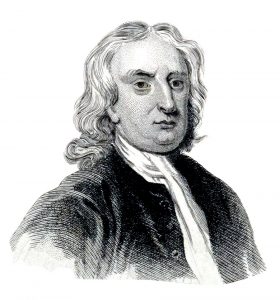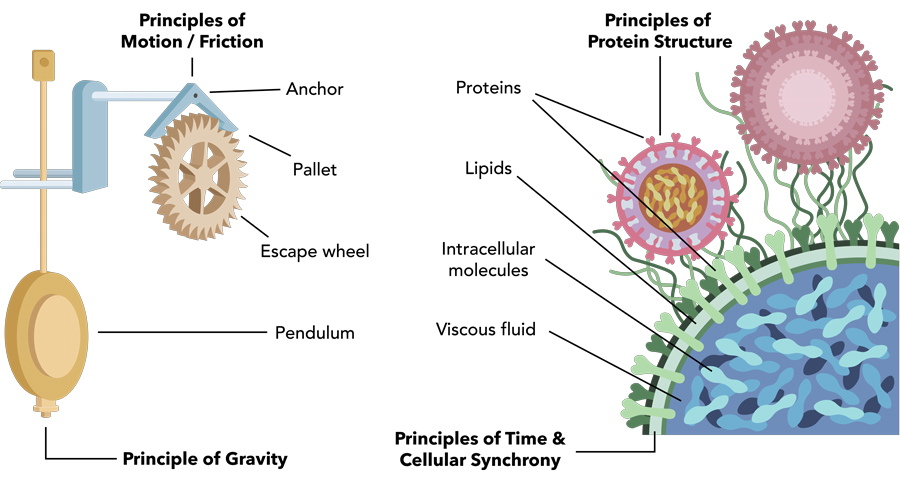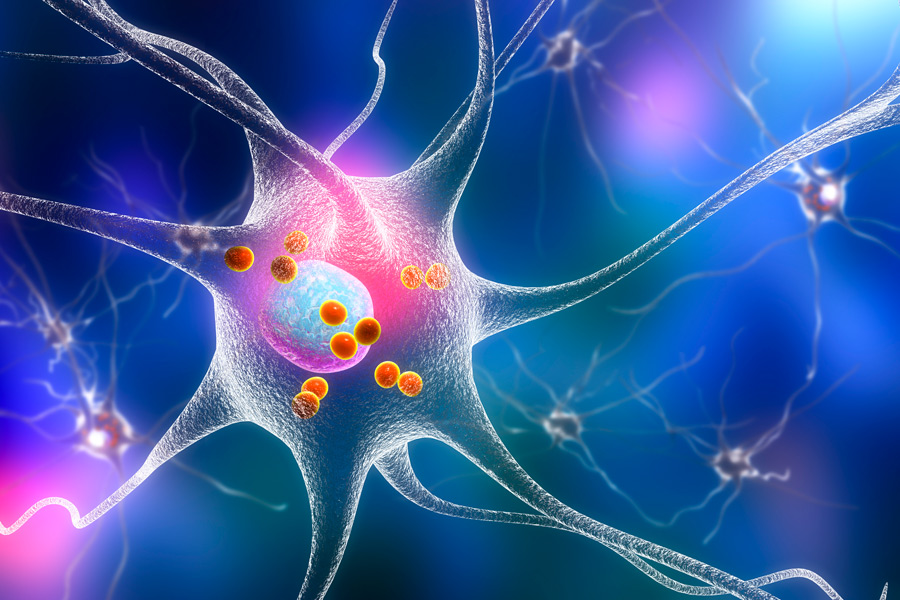Genuinely theoretical: The case for Philosophical Biology
Dr Sepehr Ehsani has a varied background, beginning in laboratory-based medicine and pathobiology, but then moving into the sphere of analytic philosophy. This move occurred in response to Dr Ehsani’s gradual realisation that there was currently no unified and genuinely theoretical basis to most of biological studies. What is sometimes termed ‘theoretical’ is generally confined to computational or mathematical analysis. This, Dr Ehsani contends, has held biology back. Theory (from the Greek theōréō, meaning “I look at, view, consider, examine”) should ideally help to guide scientific practice. As a case in point, consider how theoretical and experimental physics complement each other. Since philosophy is the province of theoretical analysis, in his work Dr Ehsani puts forward the case for a philosophical approach to biology and outlines how this would look.
The state of theory in biomedicine
Over the last few decades, Dr Ehsani notes, biology (including medicine) has made great leaps forward. In the 1970s, scientists started to gain new insights on molecular biology and, in the early 2000s, genome sequencing helped us to understand normal and diseased cells more fully. These have meant incredible things for humanity, including, to take a few examples, an 80% long-term survival rate for children diagnosed with cancer, and advances in treatments for cystic fibrosis or hepatitis C virus infections.
Despite this, quite a number of diseases remain incurable or very difficult to treat. Dr Ehsani posits that, amongst other issues, this could be because there is no uniform understanding of the mechanistic models used to explain the cellular and molecular causes of different illnesses. To discover these, one could focus on laying out some of the theoretical foundations of biology. Once the discoverable fundamentals of the biology of the cell begin to be clarified and understood, advancements can be made based on more in-depth mechanistic explanations of disease.

Even the term “theoretical biology” is problematic, often becoming synonymous with computational/mathematical biology rather than hinting at philosophical biology. Part of the reason why this is problematic is that the theoretical value of a mathematical or computational model depends on the very theory it is meant to represent. As a starting point, Dr Ehsani suggests that researchers could utilise relevant and timeless messages from the history and philosophy of science, using the work of analytical approaches that have developed from the pre-Socratics all the way to the logical empiricists of the last century.
Philosophical biology would entail an analysis that endeavours to be historically, biologically, and philosophically informed.
History and philosophy of science: ancient yet still relevant approaches
Many philosophical investigations begin with some examination of Plato or Aristotle. As Plato’s one-time student, Aristotle developed a unique style of reasoning to help him understand not only problems traditionally associated with philosophy, but also specific to the biological world. Aristotle could be said to have been one of the earliest “philosophical biologists”. His non-biological contributions too are still applicable to biology, for instance Aristotle’s research on causation, or the ‘becoming’ of everything: the material cause or ‘matter’, out of which a thing comes to be and persists; the formal cause or ‘form’, which is a form or archetype; the efficient cause or ‘agent’, which is the primary source of change; and the final cause or ‘goal’, which is the sake for which something is done. This represents a workable theoretical basis, which can support different kinds of rational inquiry. Historically, for example, scholars used Aristotelian ‘final causes’ and goal-directedness to investigate questions in teleology. Today, that same goal-directedness could be used for different purposes, such as in thinking about maintaining proteostasis (protein homeostasis) in cells or constant body temperature in animals.
Post-Galilean theoretical framework of science
Galileo, while most well-known as an astronomer, also took a largely philosophical approach. In fact, as noted by commentators on the history of early modern science, Galileo allowed himself to be puzzled by some of what the Aristotelian thinkers before him had taken for granted. One of his main research tools was the use of thought experiments. For instance, Galileo reasoned that a person on a stationary ship would experience motion the same as a person on a moving ship with constant velocity, therefore arguing against the notion of absolute motion or rest. Galileo’s achievements on the motion of physical masses, along with the works of Descartes and others, helped pave the way towards mechanical explanations that would form an intelligible and overarching theory of nature.
The mechanical philosophy heralded the dawn of modern science. We should remember that this was a time when the current boundaries between science and philosophy, or between biology and chemistry, did not yet exist. The essence of this modern science was that all of nature could, in theory, be intelligible in mechanistic terms, just like explaining the workings of a pendulum clock. Against this backdrop, however, Newton showed that the picture cannot be this simple. What makes two physical masses attract or repel each other when they are not connected by any physical means? The principles or laws of nature that Newtonian physics introduced to explain these puzzles allowed for a more in-depth explanation of natural phenomena. The same pendulum clock could now not only be explained by accounting for its physical components and adding ever more mechanistic details, but also by appealing to laws of gravity and motion.

Clock visualisation based on an anchor escapement illustration by Encyclopaedia Britannica. Cell and viruses visualisation based on illustration by David S. Goodsell, RCSB Protein Data Bank
A crucial but at times overlooked consequence of Newton’s revolution in mechanical philosophy was that it reintroduced a certain ‘mysteriousness’ to it: where does a “law of nature” like the law of universal gravitation come from? How would these laws really interact with the actual mechanical components of something like a clock? Indeed, physicists today are still researching the true nature of gravity or forces such as electrostatic attraction / repulsion (described by Coulomb’s law).
Principled Mechanism: an example of philosophical biology
Fast forward three centuries from the time of Newton, and what we see is that today the gold standard of understanding in cell biology is based on mechanistic explanations: e.g. what genes or proteins are involved in a given cellular process being studied, what are their connections, how does one protein affect another, and so on. Using a framework called “Principled Mechanism”, Dr Ehsani is currently working to improve the foundations of mechanistic explanations in biology. This is an example of a philosophical biology approach.
In Principled Mechanism, the first task is to define what an ideal or paradigmatic mechanistic explanation and model would look like. Imagine again a pendulum clock: what does it take to explain the actual mechanism of the clock in full detail? Having done this, the next step would be to propose principles or rules that could apply to or govern various elements of the mechanistic explanation. We know what these principles are for a clock mechanism: they are physical laws of nature. But what about in biology? Dr Ehsani thinks that there might be principles that are specific to and uniquely operative in cell biology.
In a research programme pursuing such a lead, investigators might ask: what exactly are biological principles, and how would one go about discovering them? How do they relate to physical/chemical principles such as those of thermodynamics? And, how do they engage with the different elements of mechanistic explanations and improve the overall explanation? Metabolic scaling laws could be putative examples of a biological principle, and Dr Ehsani is presently exploring the potential for principles that could uniquely account for ‘intrinsic disorder’ in protein structure or explain the synchronicity/timing of intracellular biochemical processes.
By looking at biology through a philosophical lens, it is possible to eventually arrive at a unified foundation, just like it has been achieved in certain areas of physics or linguistics.
Overall, Dr Ehsani thinks that even in the relatively uncomplicated case of Principled Mechanisms, insights from the history of philosophy, current works in the philosophy of biology, and up-to-date research in all the natural sciences must work together if real progress is to be made. He asserts that “philosophical biology would entail an analysis that endeavours to be historically, biologically, and philosophically informed.”
TMT’s and TPS’s
Dr Ehsani, having laid out the case for philosophical biology and what it might look like, goes on to propose two broad categories of inquiry that philosophical biologists could grapple with: one having to do with methodology, and the other with the actual questions, puzzles or paradoxes being studied. The first category, of which Principled Mechanism is an example, is called Theoretical Methods and Tools (TMTs).

Among the most well-known TMTs in philosophy and logic are deduction (moving from general principles to necessitated specific explanations of phenomena) and induction (moving from specific phenomena to form general principles). Consider how this could be applied to cell biology, using deductive reasoning:
• Premise One: All biochemical reactions in cellular environments are synchronous and coordinated at multiple levels.
• Premise Two: All synchronous phenomena require some form of an internal or external pacemaker.
• Conclusion: If these two premises can be shown to be true, we can deductively reason that all biological reactions in cellular environments are driven by a cellular pacemaker.
While there can be many different forms of TMTs, this is a simple example of how a theoretical method can help raise new puzzles or questions. Incidentally, the idea of time at a cellular (sub-millisecond) level – not to be confused with the circadian rhythm or the cardiac pacemaker – has not been investigated in any appreciable manner so far.
The second category of inquiry is Theoretical Problems and Solutions (TPSs). Regardless of what method one is applying, the most important aspect of any scientific enterprise is the initial question that motivates it. Answers that a researcher arrives at by experimentation are also, to a great extent, shaped by and predicated on the initial question that was posed. Dr Ehsani describes the TPS category as being composed of “newly formed questions and possible sets of solutions that could be proposed using philosophical approaches”. He then gives a list of examples such as this basic question having to do with protein biology: what are the structural differences between proteins of the same three-dimensional fold arising from entirely different amino-acid sequences? But we do not stop there. TPS also entails imagining, based on the available evidence, what sorts of answers might be possible for this question. Having the question and a set of possible answers (a ‘solution space’) at hand can be the perfect complement to experimentation.
In all, by looking at biology through a philosophical lens, it is possible to eventually arrive at a unified foundation, just like it has been achieved in certain areas of physics or linguistics. With a dynamic theoretical foundation, cell biology might be able to progress much more rapidly and continue to make genuine strides in our understanding of what is really taking place in the cell and its microenvironment. It is hoped that this would also translate to tangible advances in treating many acute and chronic diseases.
Personal Response
All things considered, why should biomedicine take up a more philosophical approach, and what impact could this have on the field?
<>
The molecular turn in biology has been very fruitful in revealing the ‘mechanisms’ that underpin the innumerable biochemical processes taking place inside and outside the cell. This has in turn translated into many clinical successes. However, I think it has now become clearer to many more investigators that the utility of current approaches has real limits, and that just as in certain branches of physics, a pragmatically-oriented theoretical branch of the discipline can help. We should also bear in mind that even a supposedly ‘hypothesis-free’ observational study would be impossible without some underlying theory; the theory might be tacit or subconscious, but it is still there somewhere in the background. Theories should be made explicit, investigated, developed and incorporated fully in biological research programmes. Given that we are all working with limited time and resources, an approach attuned to analytic philosophy can lead to more insightful experiments and enhance both the interpretation of results and their eventual translation into the clinic.
